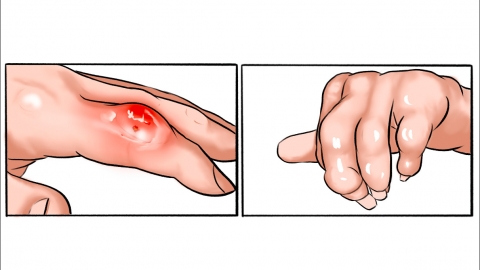What foods should not be eaten with gout?
Generally, gout patients should avoid eating foods such as pork liver, sardines, pork bone broth, beer, and lychees. They should also avoid taking medications such as aspirin tablets, hydrochlorothiazide tablets, furosemide tablets, pyrazinamide tablets, and ethambutol tablets on their own. Detailed explanations are as follows:
1. Foods
1. Pork Liver
Pork liver is a high-purine food. Due to impaired uric acid excretion or excessive production in the body, consuming pork liver can cause a sharp increase in blood uric acid levels. Excess uric acid tends to form urate crystals that deposit in the joints, triggering acute gout attacks such as joint redness and pain.
2. Sardines
As a typical high-purine seafood, purines in sardines are metabolized into uric acid in the human body. Consuming sardines increases uric acid production in gout patients,加重 the kidneys' excretory burden, potentially leading to urate crystal deposition and exacerbating the condition.

3. Pork Bone Broth
Pork bones themselves contain a certain amount of purines. After prolonged cooking, purines dissolve extensively into the broth, resulting in much higher purine content in the soup than in the meat itself. Consuming this broth can rapidly elevate blood uric acid levels in gout patients, disrupting the body's uric acid balance and triggering or worsening gout symptoms.
4. Beer
Beer not only contains purines but also contains alcohol, which inhibits uric acid excretion by the renal tubules and promotes ATP breakdown, increasing purine production. These dual effects lead to elevated blood uric acid levels, making beer a common trigger for gout.
5. Lychees
Lychees contain high levels of fructose. During fructose metabolism in the body, ATP is consumed to produce uric acid precursors, promoting purine synthesis while reducing the kidneys' ability to excrete uric acid, leading to elevated blood uric acid levels, which is unfavorable for gout patients' condition control.
II. Medications
1. Aspirin Tablets
Although low-dose aspirin is commonly used for cardiovascular disease prevention, it inhibits uric acid excretion by the renal tubules. High-dose aspirin may promote uric acid excretion, but gout patients rarely use high doses clinically. Therefore, gout patients are generally advised to avoid its use.
2. Hydrochlorothiazide Tablets
This medication belongs to thiazide diuretics, primarily used for treating hypertension and edema. Its mechanism of action reduces uric acid excretion by the kidneys, causing uric acid retention in the body. Long-term use easily elevates blood uric acid levels, inducing or worsening gout.
3. Furosemide Tablets
A potent diuretic used for treating severe edema and hypertension. This drug inhibits renal tubular reabsorption of uric acid while increasing uric acid secretion, but overall still reduces uric acid excretion, easily leading to elevated blood uric acid levels. Gout patients must use it cautiously or avoid it altogether.
4. Pyrazinamide Tablets
A commonly used medication for anti-tuberculosis treatment, its metabolites interfere with uric acid excretion by the renal tubules, causing elevated blood uric acid levels. Some patients may experience acute gout attacks after taking it, requiring uric acid level monitoring under a physician's guidance.
5. Ethambutol Tablets
Frequently used in anti-tuberculosis combination therapy. Although its mechanism of affecting uric acid metabolism is not yet fully understood, clinical observations have found that some patients experience elevated blood uric acid levels and even gout after taking it. Gout patients must closely monitor uric acid levels when using this medication.
In daily life, maintaining a low-purine diet, drinking plenty of water to promote uric acid excretion, and avoiding strenuous exercise and cold exposure are also important. If symptoms such as joint pain occur, seek medical attention promptly and follow standardized treatment under a physician's guidance; never take medications on your own.




